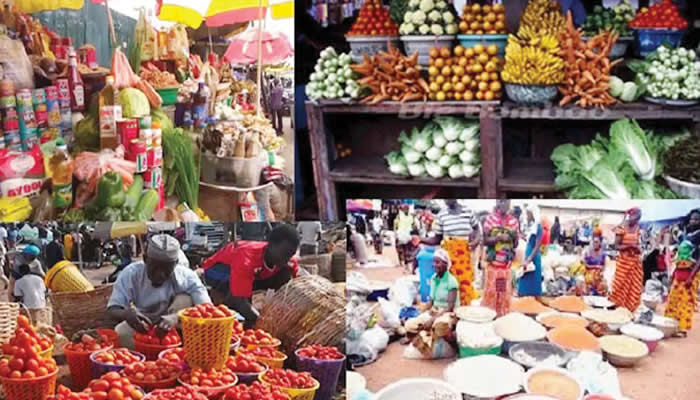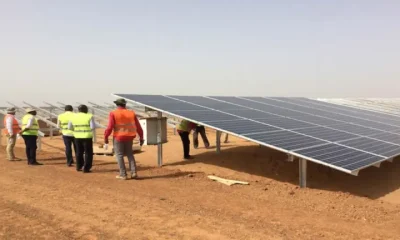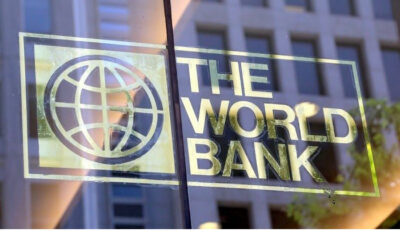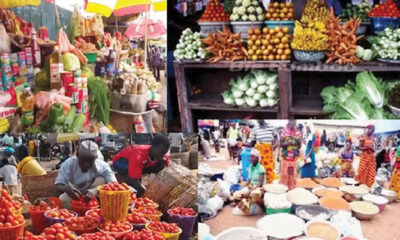News
World Bank Says Inflation Will Push 2.8 Million Nigerians Into Poverty

Rising inflation and low economic growth in Nigeria will push a further 2.8 million people into poverty by 2023’s end, the World Bank has disclosed.
This is based on a report titled, ‘Macro Poverty Outlook: Country-by-country Analysis and Projections for the Developing World,’ released recently. The Washington-based bank said, “By the end of 2023, the rise in inflation and low economic growth will have contributed to an increase of 2.8 million people in poverty (y-o-y), a 0.4 percentage points bump to 37.5 per cent of the population.”
It noted that Nigeria’s high inflation reached a17 17-year high of 24.1 percent (y-o-y) in July 2023, partly reflecting surging food prices and the temporary impact of the removal of the fuel subsidy. It stated that a cumulative 725 basis points hike in the monetary policy rate since May 2022 has had little effect on reining in inflation due to clogged transmission channels, also weakened by direct credit allocation by the central bank, and the continued monetization of the fiscal deficit.
The global bank further declared that federal fiscal deficit has risen to 63 per cent higher between January and May 2023 than in the same period in 2022, due to increasing interest payments, higher capital spending ahead of the elections, and the continuous large cost of the fuel subsidy.
The impact of this is set to spike public debt to 45 per cent of GDP and keep debt service above total revenue in 2023. It said. “The fiscal financing need and the devaluation of the naira are expected to push the public debt to 45 per cent of GDP and keep the debt service above total revenues in 2023.
“The current account balance (CAB) recorded a surplus of 2.2 per cent of GDP in Q1 2023, driven by lower imports and income outflows. However, the small CAB surpluses and capital flows since 2022 have been insufficient to increase foreign reserves, as oil export FX flows to CBN contracted, likely as a result of the direct crude sale-direct fuel purchase arrangements.”
The Bretton Woods Institution further predicted that future economic growth in the country will depend on the continued implementation of macro-fiscal and inclusive structural reforms. It stated the current reforms of the government will boost economic growth to an average of 3.4 per cent in 2023-2025.
It also expects inflation to begin to moderate by 2024.
The World Bank added, “The share of Nigerians living below the international poverty line is expected to peak in 2024 at 38.8 per cent before beginning a gradual decline, as inflation cools down and economic growth picks up. Targeted measures, including cash transfers, could mitigate short-term adjustment costs to the poor and vulnerable and mitigate their risk of falling into intergenerational poverty traps.”
Earlier in June, the bank disclosed that inflation pushed an estimated four million people into poverty between January and May 2023. Inflation has since risen to 27.33 per cent as of October 2023.
News
Woman killed while crossing road in Anambra

The Federal Road Safety Corps (FRSC), Anambra State Sector Command, has confirmed the death of a woman in an accident at Okpoko Market on the Asaba-Onitsha Road.
The Sector Commander, Mr Adeoye Irelewuyi, who confirmed the accident to journalists in Awka on Thursday, said that the woman was hit while she was crossing the road.
He said that the accident, which occurred on Wednesday, involved a commercial tow truck with registration number XA550BMA.
“Eyewitness report reaching us indicates that the truck was towing a vehicle in an uncontrollable speed along the axis.
“The vehicle that was being towed got detached from the tow truck.
“It hit and killed a female adult, who was said to be crossing the road, while the tow truck continued its movement.
“FRSC rescue team came to the scene and took the woman to Toronto Hospital, Onitsha, where she was confirmed dead and her body deposited at the hospital’s mortuary,” he said.
While sympathising with the family of the dead, the sector commander urged motorists, especially tow truck drivers, to exercise a high level of professionalism.
He also urged the drivers to always use standard equipment and avoid speeding.
News
LASG’s maize palliative impactful, says poultry association chair

The Chairman, Poultry Association of Nigeria (PAN), Lagos State Chapter, Mr Mojeed Iyiola, said the state government’s maize palliative to members of the association made a positive impact on the sector.
Iyiola said this in an interview with the News Agency of Nigeria (NAN) on Thursday in Lagos.
“We received about 150,000 tons of maize in February from the Lagos State government as palliative to cushion the effect of high feed prices.
“The major benefit of the palliative is that it actually cushioned the cost of production for most poultry farmers in the state.
“The palliative was beneficial as it made the cost of some poultry produce, especially eggs to drop,” Iyiola said.
He noted that prior to the palliative, a crate of egg was sold between N3,500 and N3,700 at the farm gate, but after the palliative, it now sells between N3,200 and N3,400.
According to the PAN chair, retailers and middlemen who sell from N3,800 to N4,200 do that for their personal gain.
“We have urged our members to sell their eggs at reasonable prices following the receipt of the palliative from the government.
“We appreciate the Lagos State government for the palliative but we also urge the federal government to do likewise, to further reduce the cost of production in the sector.
“This will consequently lead to drop in the prices of all poultry produce across board,” he said.
He said the palliative was shared among financial members of the association at no extra cost.
“As an association we shared the grains equally across PAN’s eight zones in the state equally. We also mandated each zone not the sell even a grain of the maize.
“We, however, considered new poultry farmers who wanted to the join the association as beneficiaries of the palliative,” said Iyiola.
He noted that through the palliative, more poultry farmers were recruited into the association.
“The maize was shared only to poultry farmers and not feed millers, it is the major component of poultry feed formulation,” he said.
-

 News6 days ago
News6 days agoFG To Provide Solar Subsidy In Nigeria Through $750 Million World Bank Loan
-

 Headline6 days ago
Headline6 days agoLassa Fever Kills 150 In Nigeria — NCDC
-

 News6 days ago
News6 days agoLagos Court Grants Emefiele N50m Bail
-

 Headline6 days ago
Headline6 days agoUnknown Gunmen Abduct Channelstv Reporter In Port-harcourt
-

 News6 days ago
News6 days agoBreaking…Naira abuse: Court sentences Bobrisky to 6 months in custody
-

 Foreign6 days ago
Foreign6 days ago3 teens arrested in Germany for allegedly plotting terror attack
-

 Business8 hours ago
Business8 hours agoSeplat Energy celebrates a decade of Dual Listing with Bell Ringing Ceremony at Nigerian Stock Exchange















